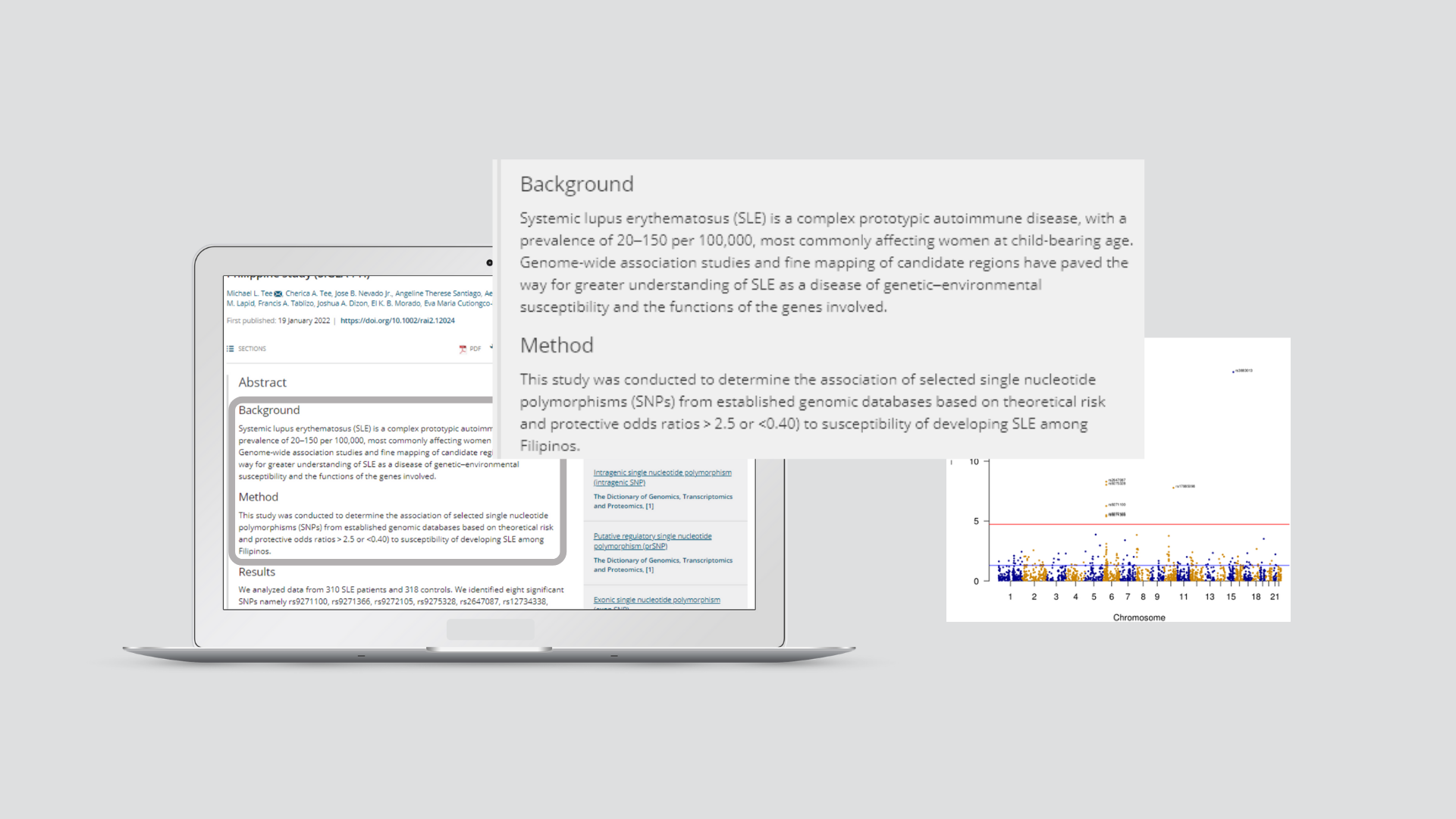Eight SNPs were found to be associated with the development of SLE among Filipinos. Similar to previous genetic studies in lupus patients, majority of the SNPs were found in the major histocompatibilty complex genes in the HLA region. Our study identified two unique SNPs that will be validated as potential diagnostic markers for SLE. The findings of this study may contribute to the development of a polygenic risk score in determining susceptibility to SLE among Filipinos.
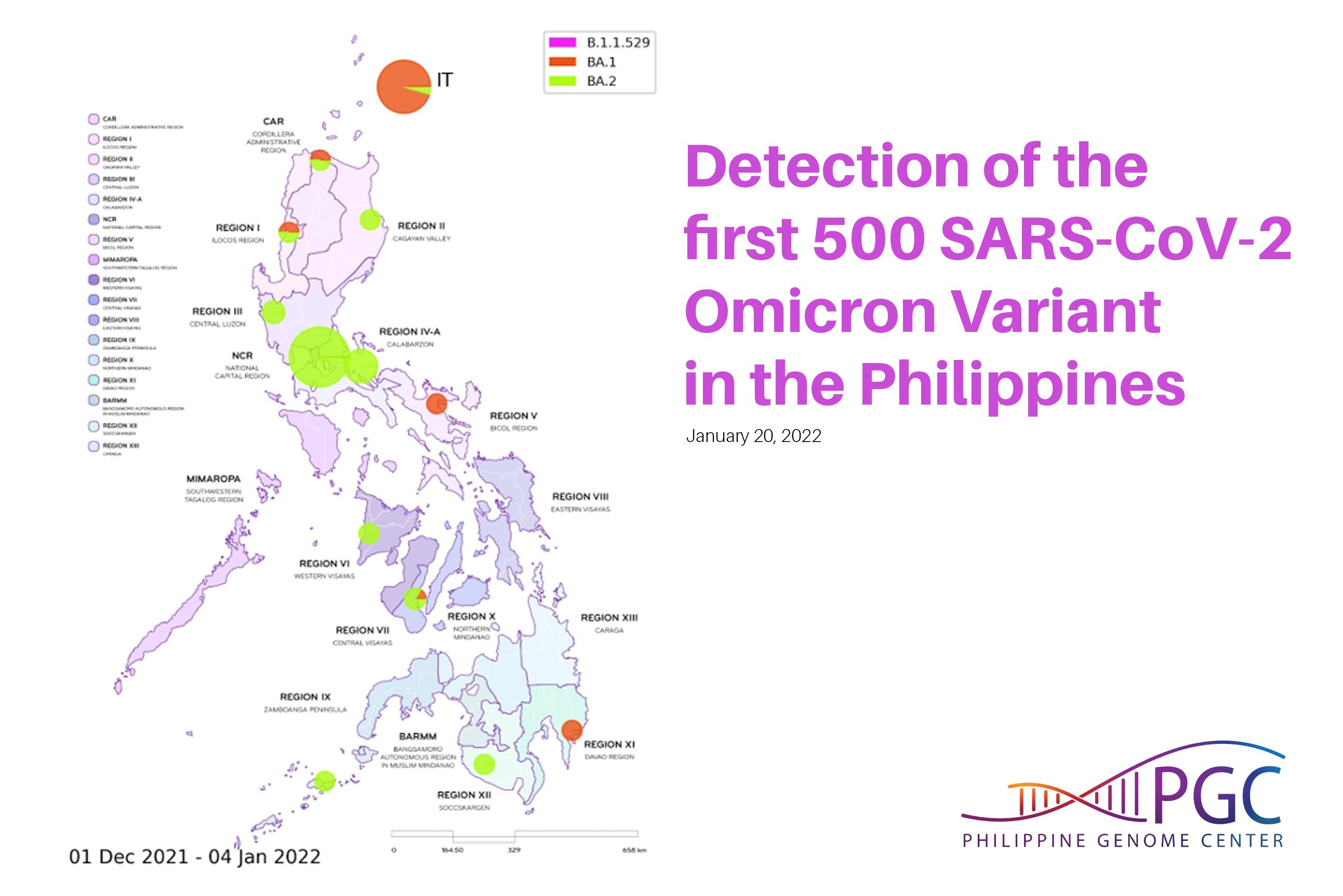
PGC SARS-CoV-2 Bulletin No. 8: Detection of the first 500 SARS-CoV-2 Omicron Variant in the Philippines
This variant, with its more than 30 mutations in the Spike region is hypothesized to be over twice as infectious and twice more likely to escape current vaccines than the Delta variant. Currently, Omicron consists of four (4) phylogenetic lineages: the main lineage B.1.1.529 and its three (3) sublineages: BA.1, BA.2, and BA.3. Based on global statistics, BA.1 is the predominant Omicron lineage being detected worldwide, but a recent increase in the proportion of BA.2 cases has also been observed.

GxB CON 2021: Overcoming Challenges, Building Opportunities
The Philippine Genome Center (PGC) is hosting the Genomics and Bioinformatics Conference 2021 on December 7-9, themed Overcoming Challenges, Building Opportunities—the 3-day conference will consist of talks from experts in health, agriculture, livestock, and fisheries as well as in biodiversity, ethnicity, and forensics.

High Performance Computing and Data Science Workflow in Julia
HPC and Data Science Workflow in Julia #PGCTalks Date: July 16, 2021, Friday, 4:30-6:00pm This webinar is open to the public and registration is free. Abstract Julia is specifically designed from the start of its conception as a language for high-performance computation but at the same time highly interactive. To achieve this, Julia is one […]
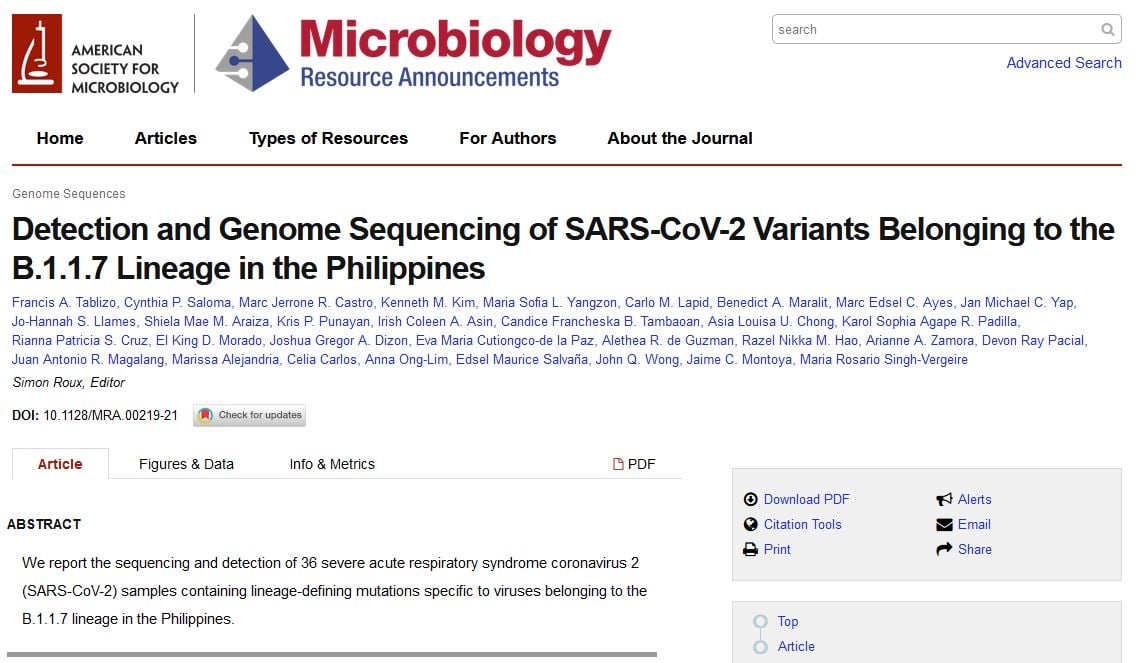
Detection and Genome Sequencing of SARS-CoV-2 Variants Belonging to the B.1.1.7 Lineage in the Philippines
Coronavirus disease 2019 (COVID-19) is an infectious disease that has gained pandemic status from the World Health Organization, with millions of cases and deaths recorded worldwide. This global health crisis is caused by the virus referred to as severe acute respiratory syndrome coronavirus 2 (SARS-CoV-2), a member of the genus Betacoronavirus (Coronaviridae), together with the causative agents of the first SARS outbreak in 2003 and the Middle East respiratory syndrome (MERS) in 2012.
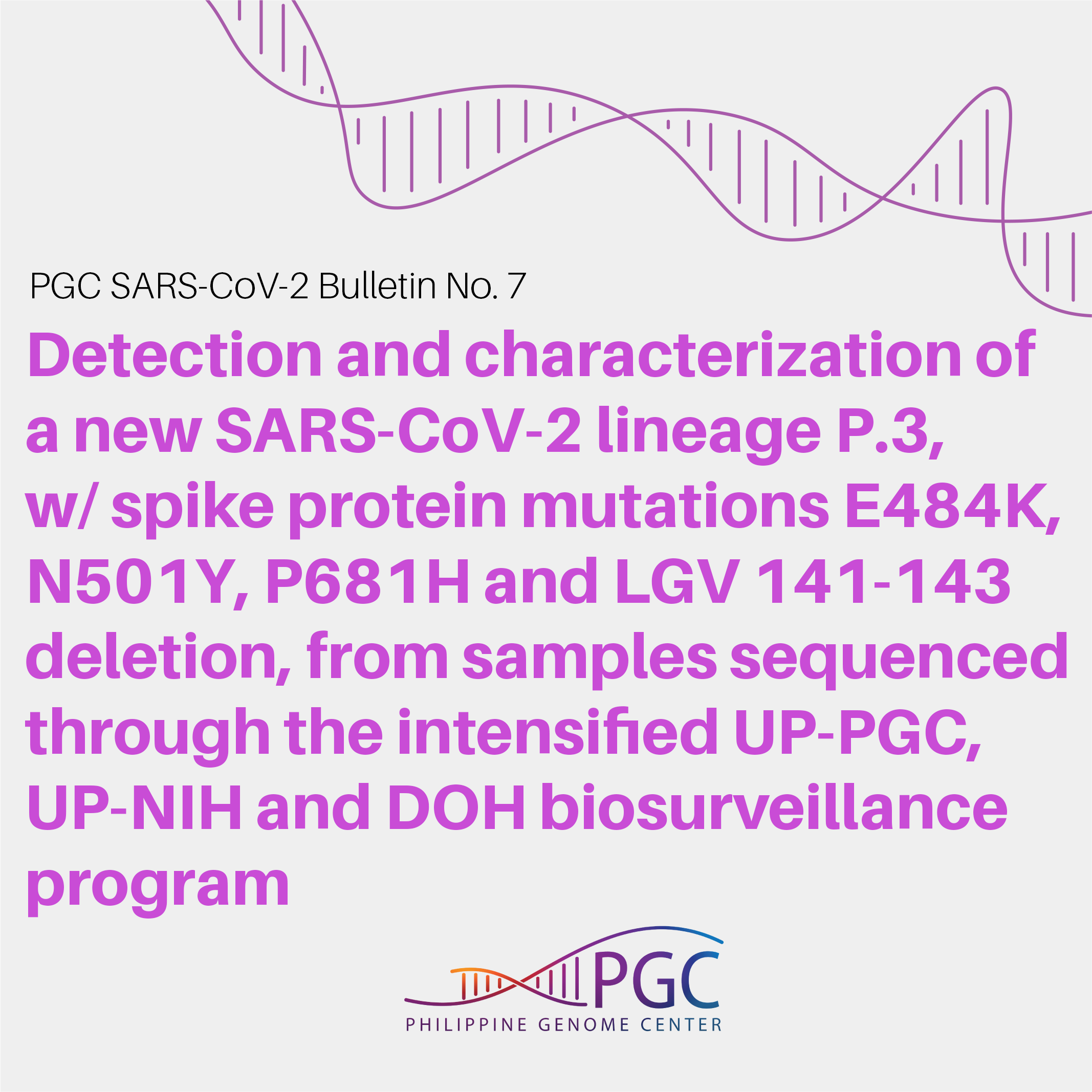
PGC SARS-CoV-2 Bulletin No. 7: Detection and characterization of a new SARS-CoV-2 lineage P.3, with spike protein mutations E484K, N501Y, P681H and LGV 141-143 deletion, from samples sequenced through the intensified UP-PGC, UP-NIH and DOH biosurveillance program
A close examination of the mutation profile of the P.3 viruses revealed that apart from E484K and N501Y, they also share other spike protein mutations that are likely to have functional significance (Figure 2). This includes the P681H mutation, also found in lineage B.1.1.7 viruses, as well as a three-amino acid deletion at positions 141 to 143 (LGV141_143del).
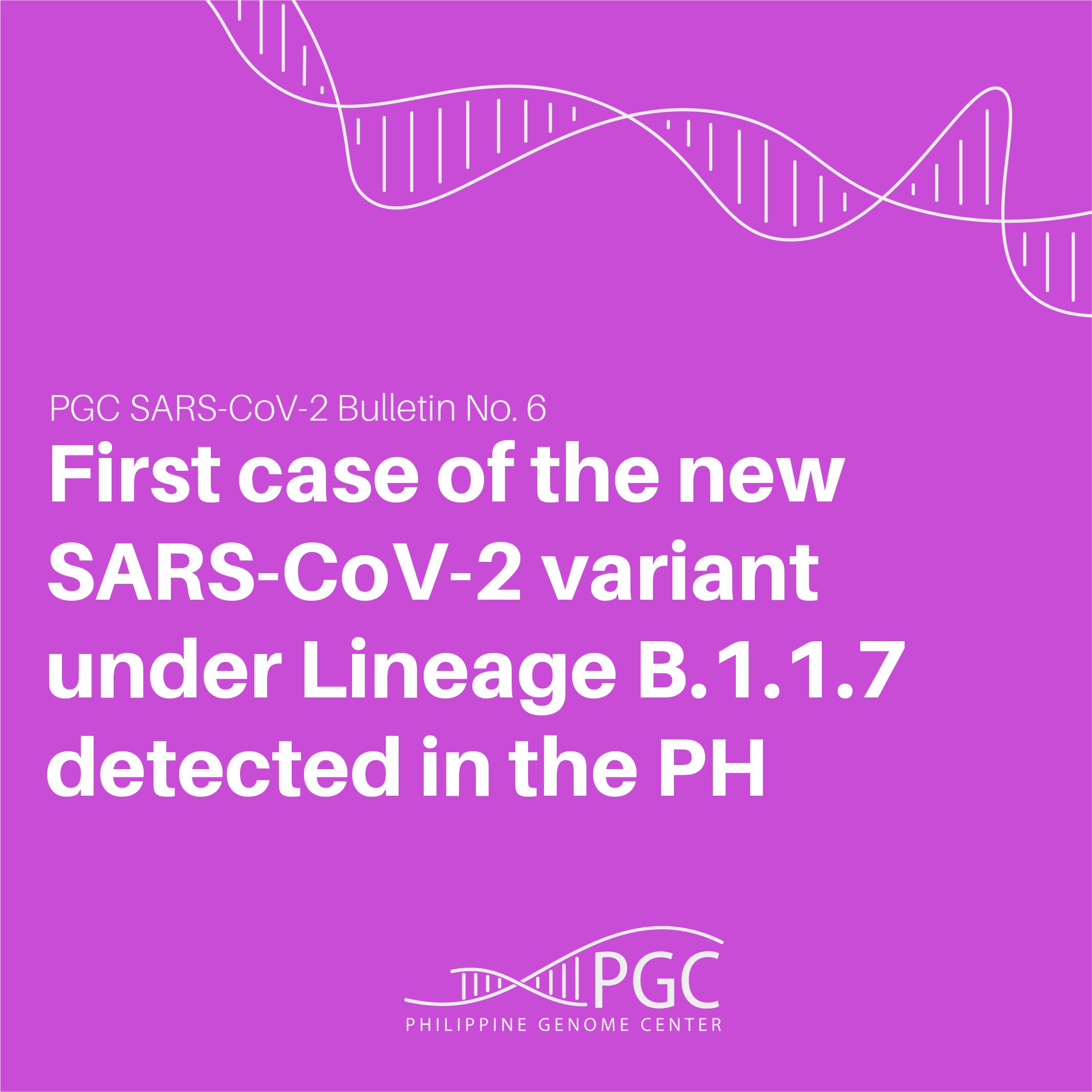
PGC SARS-CoV-2 Bulletin No. 6: First case of the new variant under Lineage B.1.1.7 detected in the Philippines
Through the biosurveillance efforts of the UP – Philippine Genome Center (PGC), in coordination with the Department of Health (DOH) – Epidemiology Bureau and the Inter-Agency Task Force (IATF) Task Force on COVID-19 Variants, we report the first confirmed case of the SARS-CoV-2 B.1.1.7 lineage, more commonly known as the UK variant, in the Philippines. An announcement of this finding can be found in an official DOH press release dated January 13, 2021.
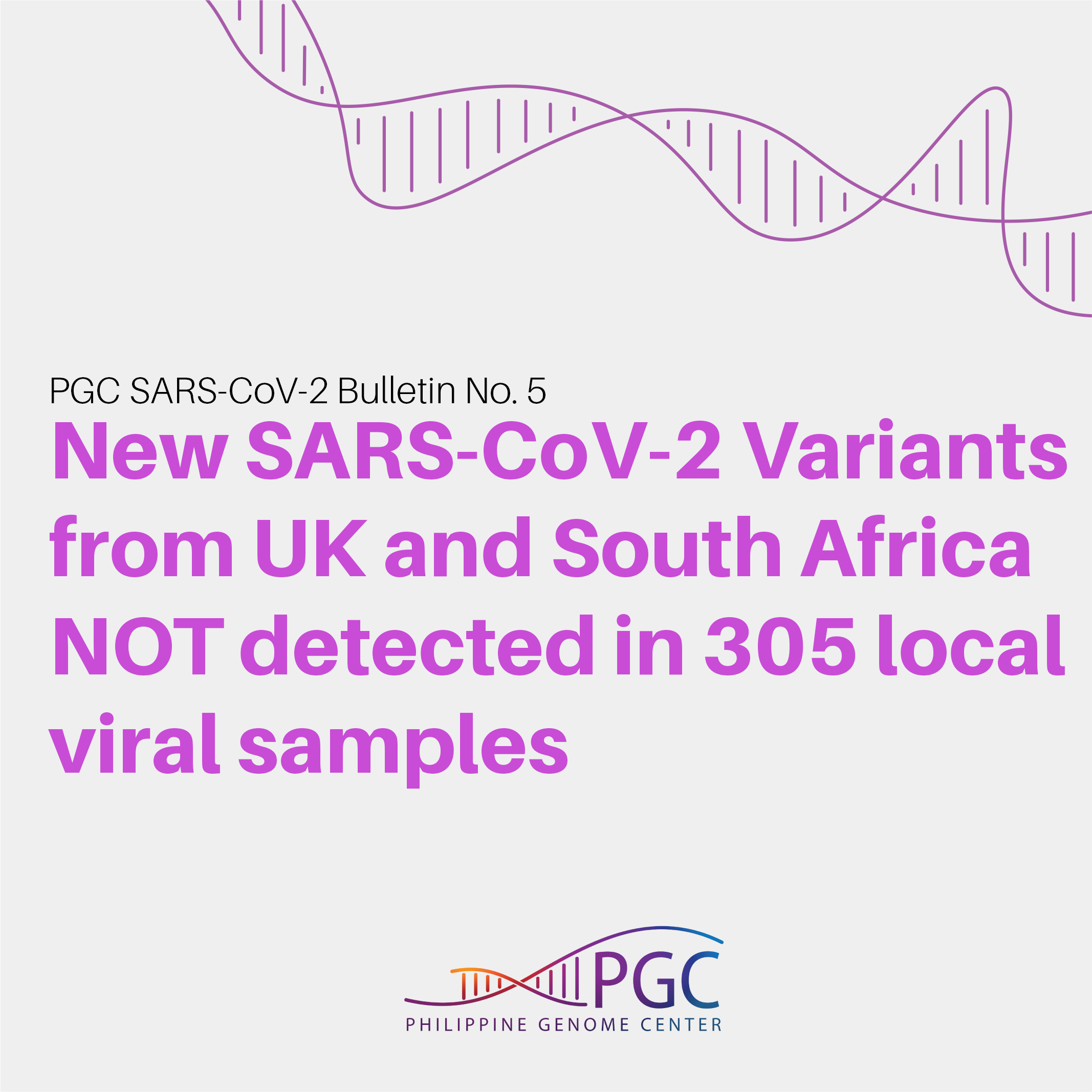
PGC SARS-CoV-2 Bulletin No. 5: New Variants from UK and South Africa NOT detected in 305 local viral samples
Recently, new SARS-CoV-2 variants were detected in the United Kingdom and South Africa with multiple spike protein mutations that may cause substantial changes in certain properties of the virus. These observations spurred biosurveillance efforts in different countries, with some countries outside of the UK and South Africa already reporting the presence of these new variants within their territories. The data presented in this report is part of our own continuing biosurveillance efforts to track the entry of these new variants in the country, as well as other viral mutations that may be of concern locally.
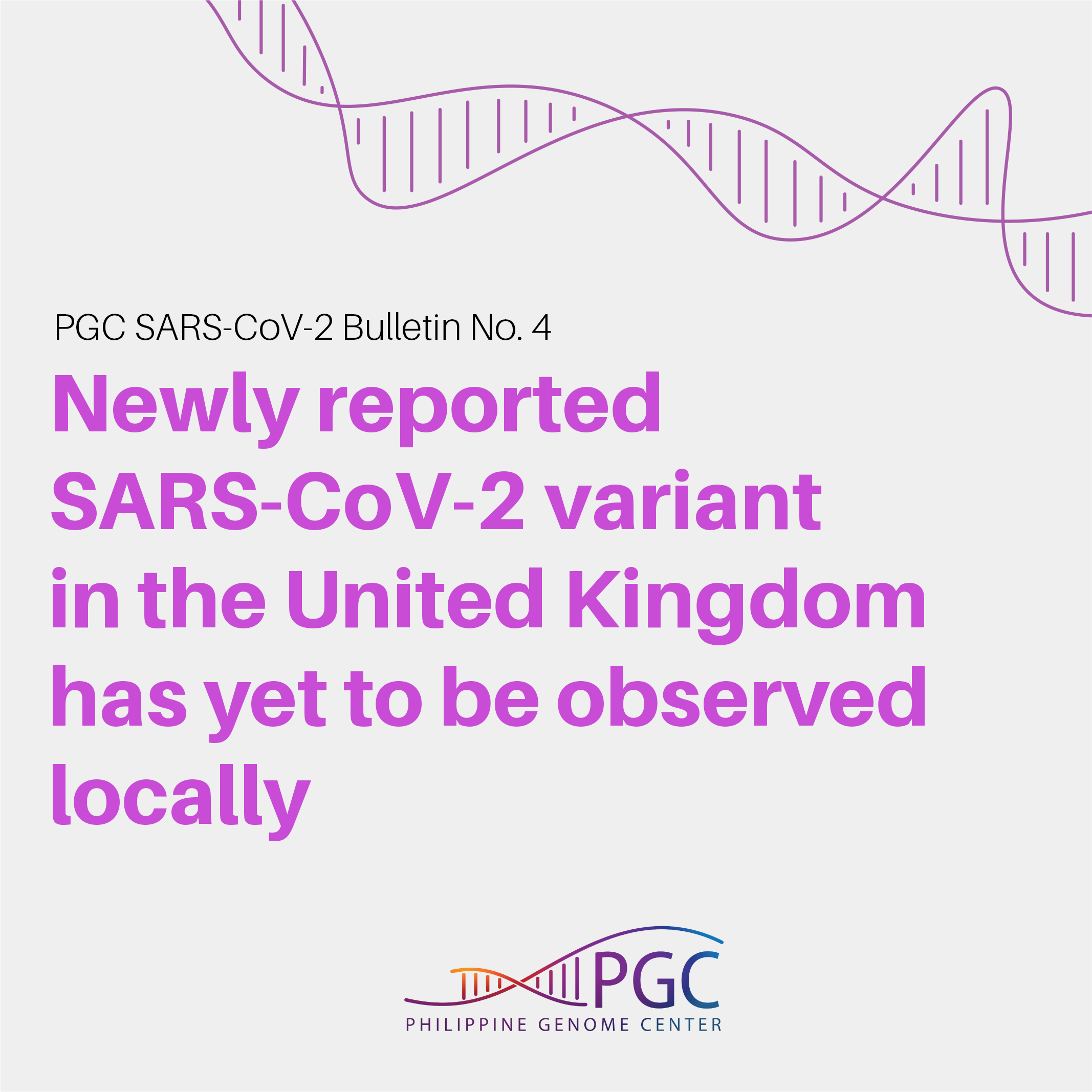
PGC SARS-CoV-2 Bulletin No. 4: Newly reported variant in the United Kingdom has yet to be observed locally
In a report posted at the Global Initiative for Sharing All Influenza Data (GISAID) website, the UK variant is said to harbor multiple spike protein mutations within a single sample, including a combination of the following: H69del, V70del(69), Y145del(143), N501Y, A570D, D614G, P681H(674), T716I, S982A, and D1118H (GISAID, 2020). While the discovery of this new UK variant appears to be concerning, the report cautions that the detailed effects of these mutations remain to be fully determined.

OnePGC: Luzon, Visayas, and Mindanao Virtual Conference 12.10.2020 #PGCParaSaBayan
Philippine Genome Center’s virtual conference on December 10, 2020. More information about this event: https://bit.ly/Program_1PGC2020 OnePGC 2020 phgenome Communications Team

